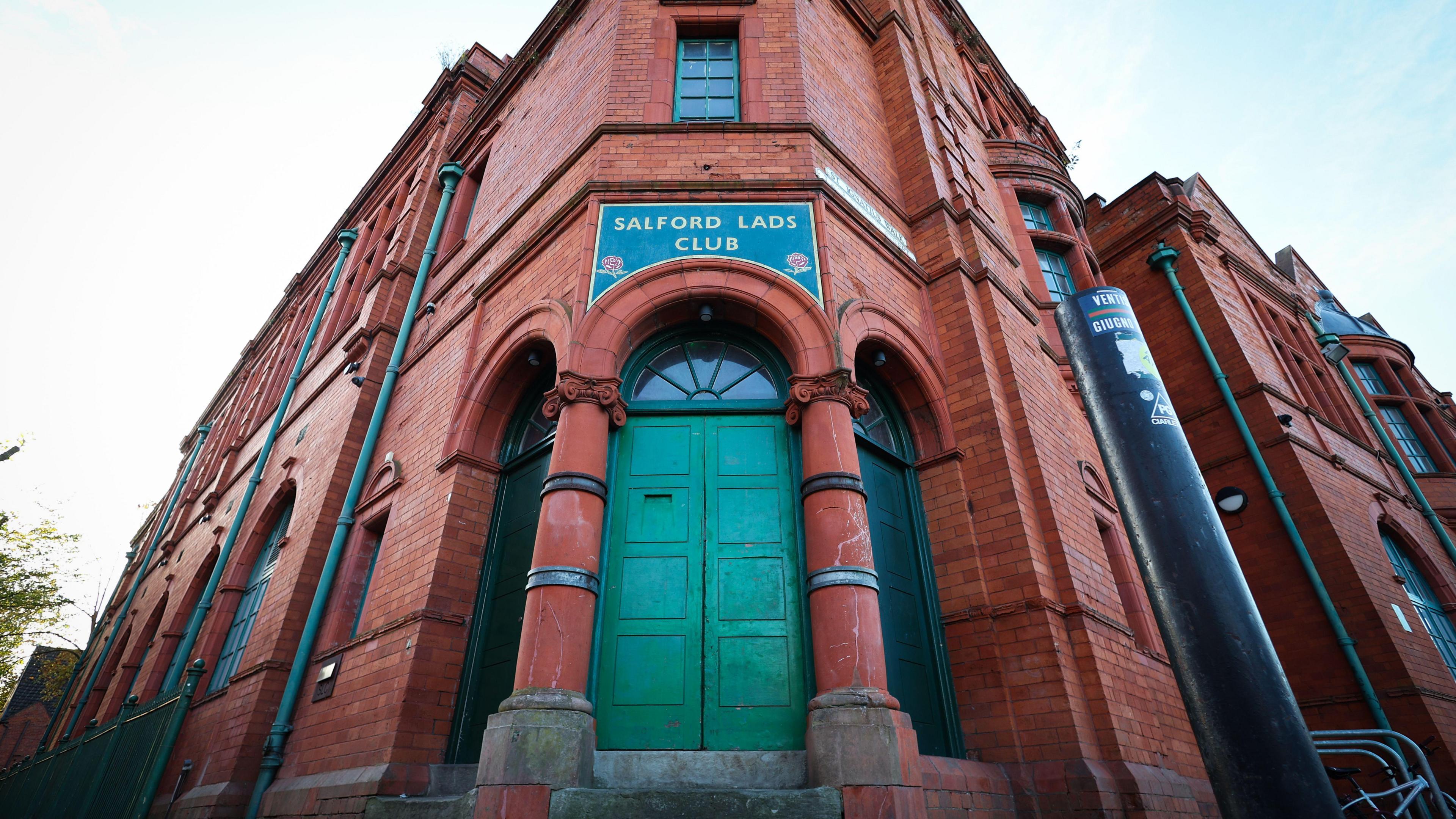Salford Lads Club - what happens next?
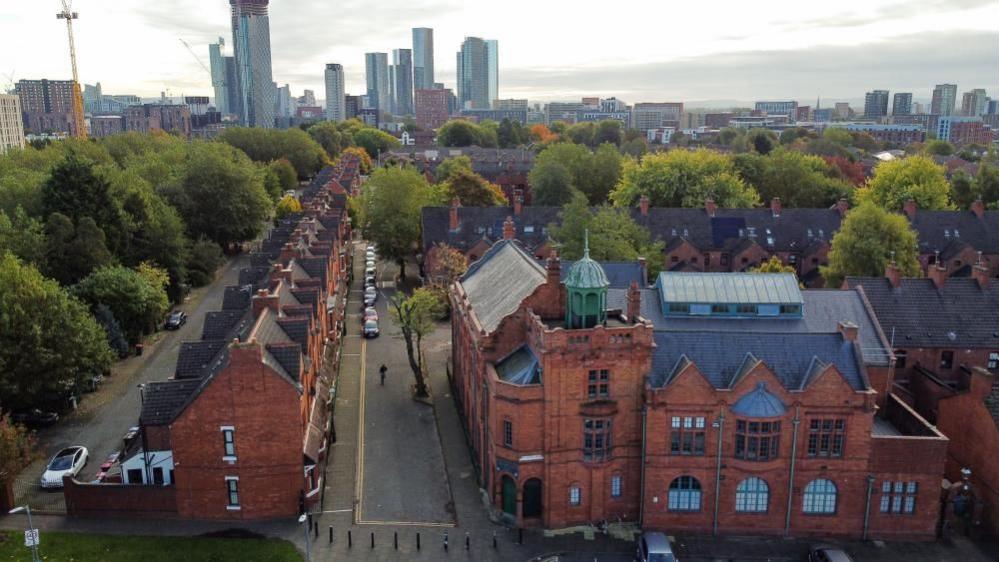
Salford Lads and Girls Club has been saved from closure. But what happens now?
- Published
Salford Lads and Girls Club has been saved from closure after its campaign to raise £250,000 attracted international attention and donations from local music legends like Morrissey and Graham Nash.
The 120-year-old club, which became part of Manchester's music history after featuring on a Smiths album sleeve, attracts visitors from across the globe.
When it became clear that the club might be lost forever, the community rallied to save it and quickly raised £250,000.
But how did the club - which gave generations of lads and later girls the chance to take part in sport, art and music - get to the point where it might have had to shut its doors? And what will be done to make sure it survives into the future?
What is the club's history?
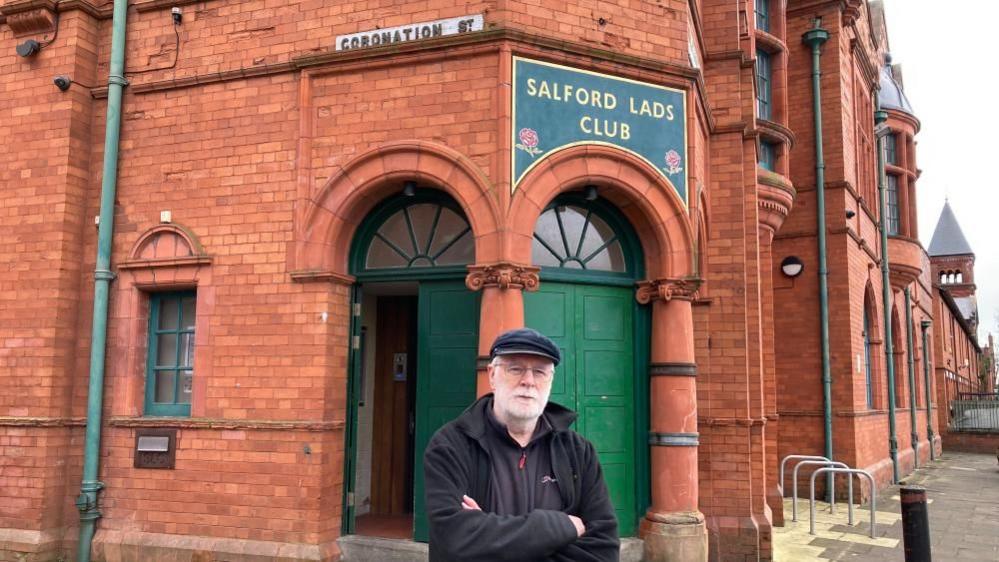
Leslie Holmes has been involved in Salford Lads Club for 22 years
What was then called the Salford Lads Club was established in 1903 as part of a "federation" of lads clubs in working class communities across the UK, project manager Leslie Holmes said.
Most of the clubs shut down between the two world wars, to the point where Mr Holmes said it was "probably the last working pre-1914 lads club in existence".
"We've got the records of every boy since 1903," he said.
"It's just unbelievable. It's unique in this country."
The club started accepting girls, whose own club had been bombed during World War Two, in 1996.
The building was given a Grade-II listing in 2003.
Despite operating for more than 120 years, Mr Holmes said the club largely performed the same function of providing a community and opportunities for disadvantaged youngsters.
"There's all sorts of things where our kids are still as deprived here as they were in 1903," he said.
"And I think that's the value of it in in in 2024."
Why was it at risk of closure?
Mr Holmes said when he first set foot inside 22 years ago, the Edwardian building was in disrepair.
He said the charity had been struggling to stay afloat since the 1970s, which saw the decline of industry around Salford docks.
"They gave money to this club, and so there were always reserves. There was always money to do things," Mr Holmes said.
The club is funded by donations and grants as well as tourism, and was hit hard by Brexit, which led to a decline in European visitors and international online merchandise shoppers.
Then the pandemic forced the club to close for around 18 months, and it was not eligible for some grants.
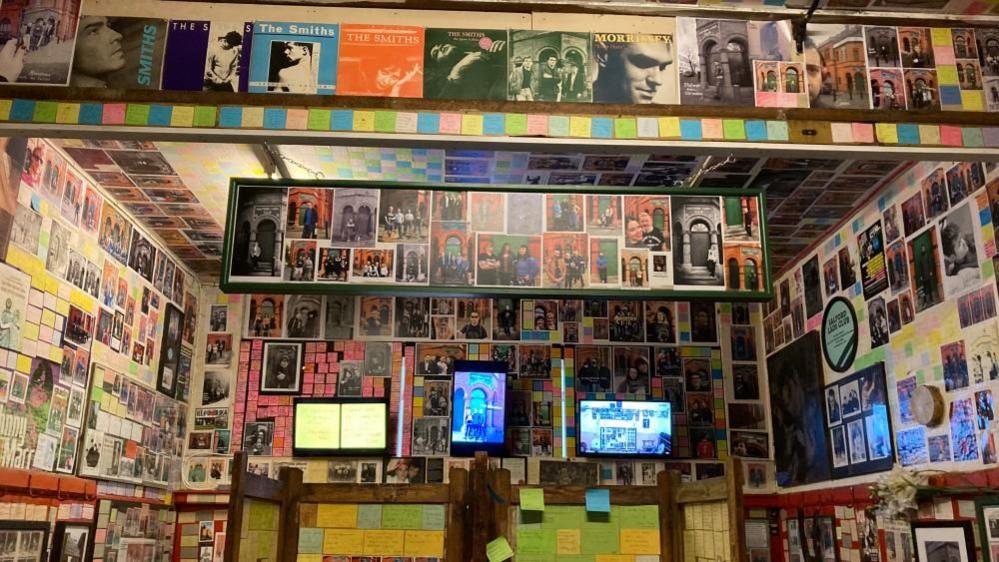
The club attracts international visitors because of its place in Manchester's music history
It also became more expensive to maintain and heat the building during the cost of living crisis, and the club began running a monthly deficit.
It had eaten up its reserves before launching its desperate appeal in October.
Mr Holmes said: "It's been a gradual decline."
The club reached its £250,000 fundraising target this week thanks to a £30,000 donation from energy firm Cadent.
Where will the money go?
Mr Holmes said the £250,000 would help it stay afloat in the short and long-term future.
He said he was overwhelmed by the success of the campaign, with funding coming from a number of high-profile donors and many people from the community and across the world.
He said: "Local people have knocked on my door to give me cash donations, people have come up to me in Sainsbury’s to ask about the appeal."
About £108,000 of the £250,000 would go towards covering monthly losses for another six months, £55,000 towards new staff for six months, and £98,000 towards replenishing reserves for three months.
The club forecasts spending £394,000 in the coming year, having brought in about £160,000 last year.
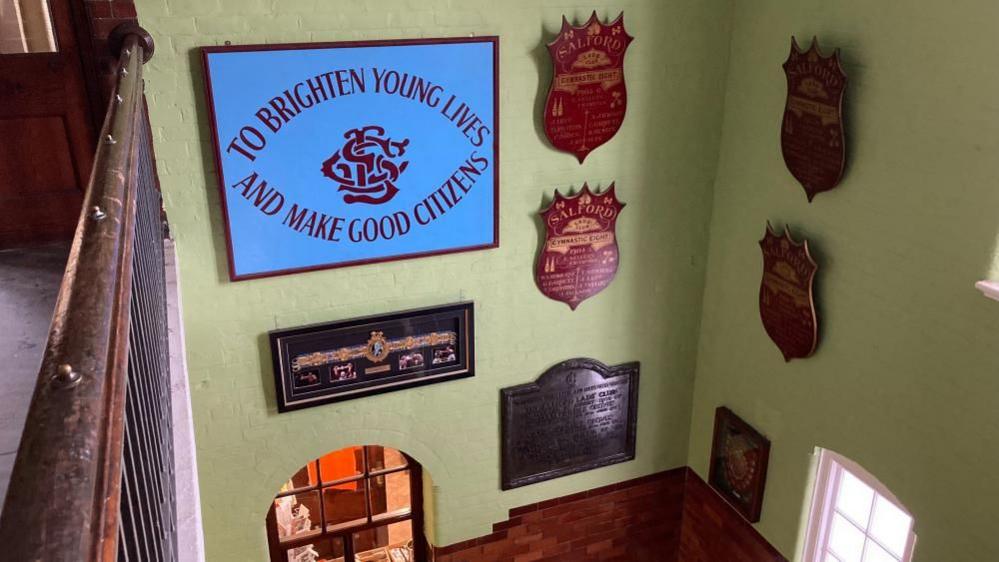
The club has records of every member since 1903
Mr Holmes said the cash would also help the club establish a "legacy fund" and go towards hiring staff to develop a more sustainable funding model.
"It's been a voluntary club for as long as I can remember, but it's not a model that you can sustain things with in this day and age," he said.
He said the fundraising campaign had also attracted offers for longer-term funding.
"We didn't know how to connect with these people and they've suddenly got in touch saying 'We're really keen to support you and we might offer you two or three-year funding'."
The financial sustainability of charity organisations is a problem that is far from unique to Salford Lads and Girls Club, with Liverpool baby hospital Zoe's Place also having said recently that it faced the threat of closure.
Mr Holmes said governments and councils had to do more to support charitable organisations in their communities, and prioritise them over new projects.
He said: "It's not small-minded, it's about valuing communities like this."
Listen to the best of BBC Radio Manchester on Sounds and follow BBC Manchester on Facebook, external, X, external, and Instagram, external. You can also send story ideas to northwest.newsonline@bbc.co.uk, external
Related topics
- Published28 November 2024
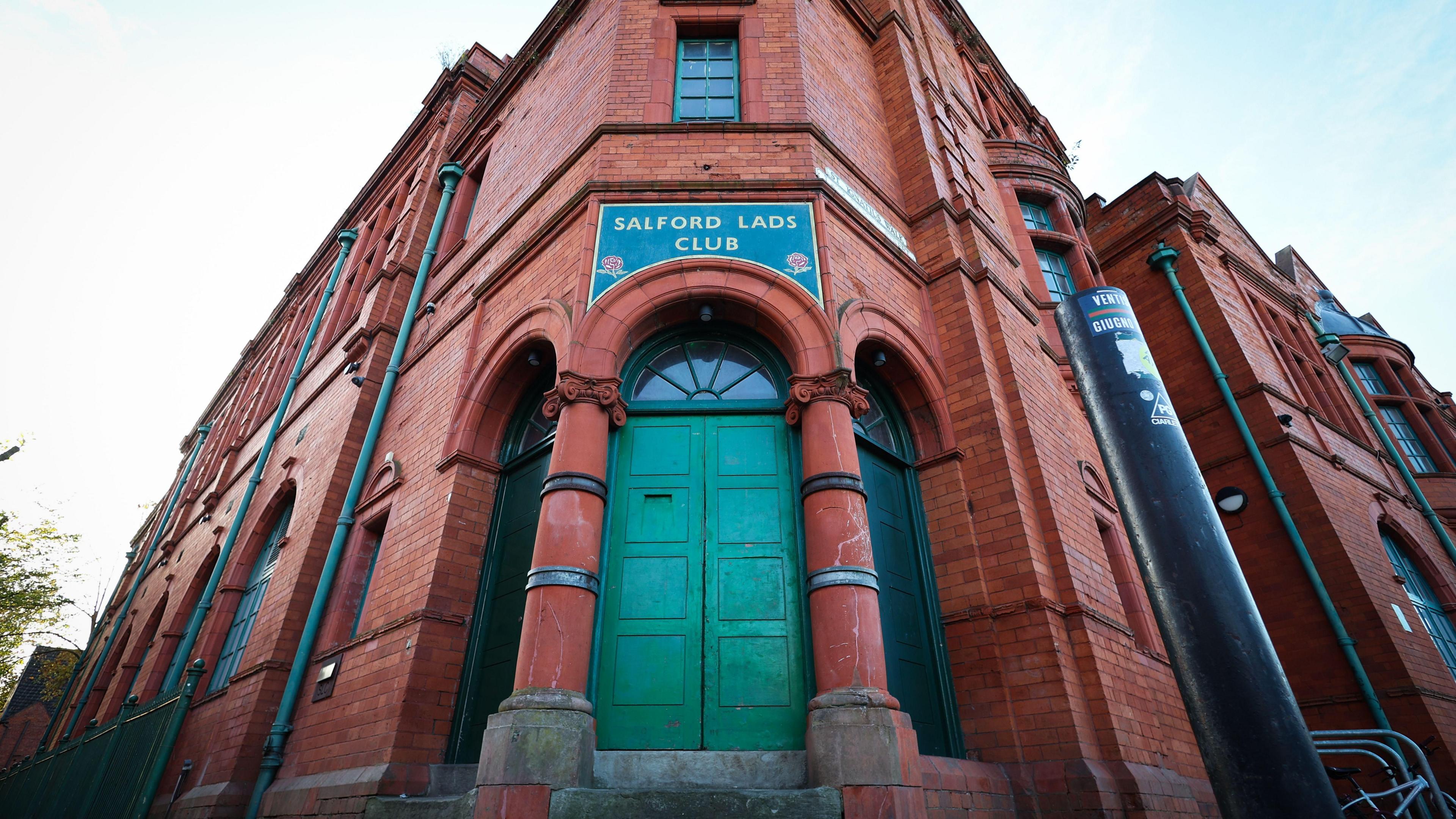
- Published31 October 2024

- Published17 October 2024
